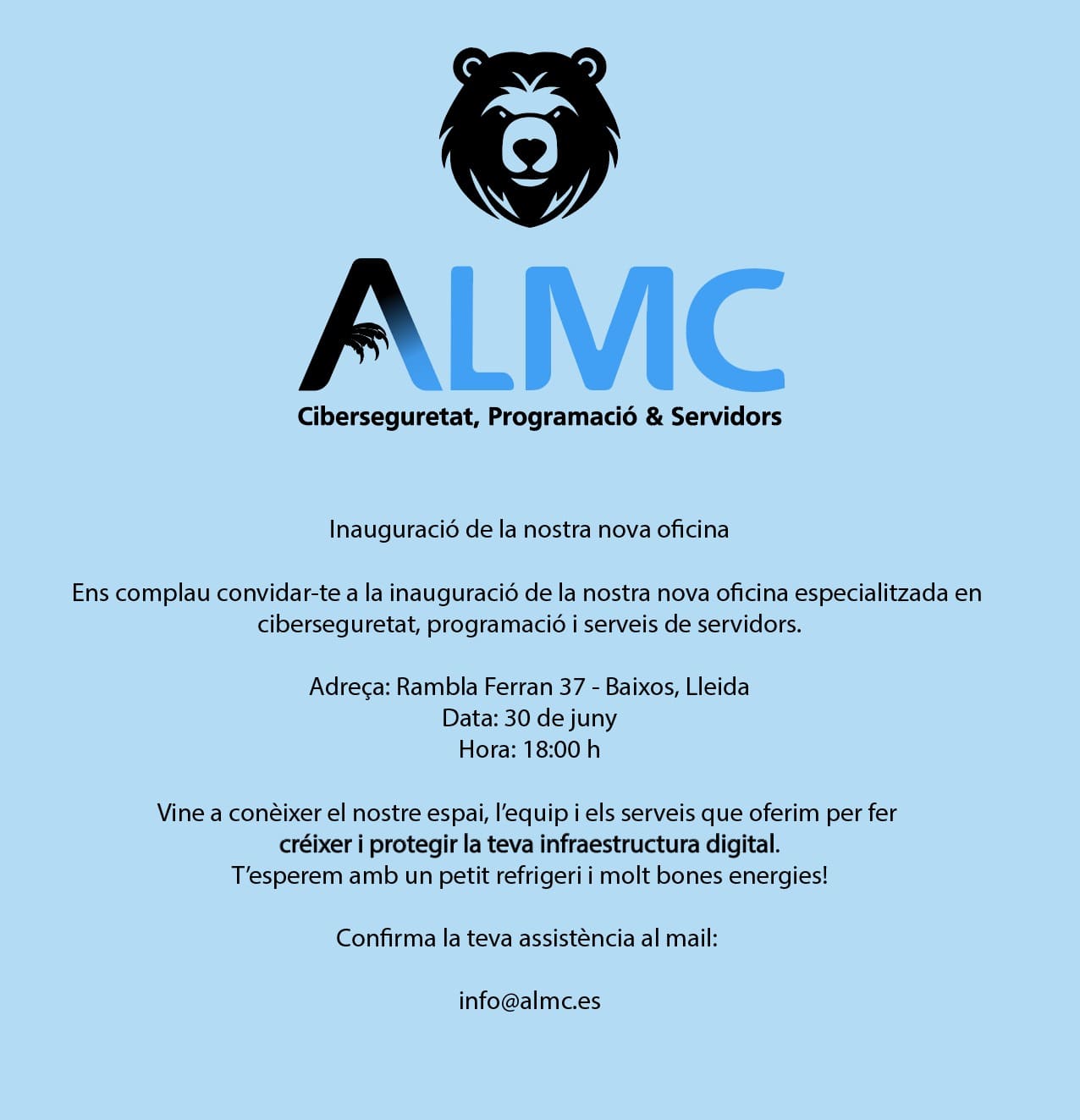MCP IDE Bridge
🎬 Demo Video
A stateless, open source MCP (Model Context Protocol) HTTP Streamable server that enables client-to-client communication between IDEs and development tools. This opens up a new dimension of collaboration beyond traditional MCP client-server interactions.
🚀 Perfect for: Cross-IDE collaboration, team development workflows, AI agent coordination, and seamless tool integration.
🌟 What Makes This Special?
Traditional MCP vs MCP IDE Bridge
| Traditional MCP | MCP IDE Bridge |
|---|---|
| Client ↔ Server | Client ↔ Server ↔ Client |
| One-way communication | Bidirectional messaging |
| Tool execution only | Real-time collaboration |
| Single IDE focus | Multi-IDE coordination |
Real-World Use Cases
🎯 IDE Collaboration
- Cursor ↔ Cursor: Share code snippets, debugging sessions, or pair programming
- Cursor ↔ VS Code: Cross-editor communication and file sharing
- Windsurf ↔ Any IDE: AI agent coordination across different development environments
- Team Workflows: Coordinate multiple developers working on the same project
🤖 AI Agent Coordination
- Agent-to-agent communication for complex workflows
- Distributed AI processing across multiple tools
- Human-in-the-loop collaboration with AI assistants
🏗️ Architecture
Client-to-Client Communication
IDE A (Cursor) ←→ MCP IDE Bridge ←→ IDE B (VS Code)
↑ ↑ ↑
MCP Client Message Relay MCP Client
Key Components
- Message Relay: Stateless server that routes messages between clients
- Client Registry: Dynamic client discovery and registration
- Message Queues: Per-recipient queues with automatic expiration
- HTTP Streamable: Latest MCP transport for real-time communication
🚀 Quick Start
1. Start the Server
Docker (Recommended):
docker run -d --name mcp-ide-bridge -p 8111:8111 mcp-messaging-server
Default Configuration:
- Port: 8111 (both external and internal)
- Host: 0.0.0.0 (accepts connections from any interface)
- Transport: HTTP Streamable (MCP latest)
- Health Check: Built-in endpoint monitoring
Python (Development Setup):
# First-time setup (see Local Development section for full instructions)
pip install -r requirements.txt && pip install -e .
# Run server
python -m mcp_messaging.server --port 8111
2. Configure Your IDE
Create mcp_recipients.json in your project root. Each project gets ONE file with its own unique ID and list of recipients it can communicate with:
{
"my_id": "myproject_cursor",
"recipients": {
"teammate_vscode": {
"name": "Teammate's Project",
"description": "My teammate's project in VS Code"
},
"aiagent_windsurf": {
"name": "AI Agent Project",
"description": "AI agent development in Windsurf"
}
},
"server_info": {
"url": "http://localhost:8111/mcp/",
"transport": "http_streamable"
}
}
🤖 AI Agent Generation: Your IDE's AI agent can generate this file! Simply ask:
- Cursor: "Generate an mcp_recipients.json for my project"
- VS Code: "Create mcp_recipients.json configuration for my team"
- Windsurf: "Help me set up mcp_recipients.json for collaboration"
📁 Multi-Project Examples: See examples/multi-project-setup/ for examples showing how different projects communicate. Each project file must be named mcp_recipients.json - the filename examples in that folder are just for reference.
3. Connect Your IDE
Cursor IDE:
- Create
.cursor/mcp.json:
{
"mcpServers": {
"messaging-server": {
"url": "http://localhost:8111/mcp/",
"type": "streamable-http",
"description": "MCP HTTP Streamable messaging server for client-to-client communication"
}
}
}
- Open Command Palette (
Cmd/Ctrl + Shift + P) - Search for "MCP: Connect to Server"
- Enter:
http://localhost:8111/mcp/
VS Code:
- Install MCP extension from marketplace
- Create
mcp_recipients.jsonin project root - Configure MCP settings in VS Code preferences
- Use MCP commands to connect and collaborate
Windsurf:
- Create
mcp_recipients.jsonin project root - Open Windsurf settings → MCP configuration
- Add server URL:
http://localhost:8111/mcp/ - Start messaging with other IDEs
Claude Desktop:
- Create
mcp_recipients.jsonin project root - Open Claude Desktop settings → MCP configuration
- Add server URL:
http://localhost:8111/mcp/ - Use Claude's MCP integration to communicate
JetBrains IDEs (IntelliJ, PyCharm, etc.):
- Install MCP plugin from plugin marketplace
- Create
mcp_recipients.jsonin project root - Configure MCP server in plugin settings
- Use MCP tools from the IDE
Note: Each IDE requires both mcp_recipients.json (for messaging) and IDE-specific MCP configuration (for connection). Each project gets ONE mcp_recipients.json file with its own unique ID and recipient list. The file must be named exactly mcp_recipients.json and placed in the project root for easy discovery by IDE agents. See examples/multi-project-setup/README.md for detailed setup instructions.
🔗 Non-IDE Clients (LangChain, mcp-use, Custom Apps)
Overview
Non-IDE clients use the exact same MCP protocol as IDE clients. The only difference is how they provide their configuration:
- IDE clients: Read
mcp_recipients.jsonfrom local file system - Non-IDE clients: Provide
recipients_configas parameter to MCP tools
No registration, no REST endpoints, no special setup - just parameter injection!
This enables seamless integration with frameworks like LangChain, mcp-use, custom Python scripts, and web applications.
Architecture
Non-IDE Client (LangChain/mcp-use)
↓
Client wrapper adds recipients_config parameter
↓
Standard MCP Tools (same as IDE clients)
↓
MCP IDE Bridge ←→ IDE Clients
Setup - Client Wrapper Approach
Create a wrapper that automatically injects your configuration:
LangChain Integration:
from mcp import Client
class MCPClientWrapper:
def __init__(self, mcp_url, recipients_config):
self.client = Client(mcp_url)
self.recipients_config = recipients_config
self.my_id = recipients_config.get("my_id")
def get_my_identity(self):
# Inject recipients_config parameter
return self.client.call_tool("get_my_identity", {
"client_id": self.my_id,
"recipients_config": self.recipients_config
})
def send_message(self, recipient_ids, messages):
return self.client.call_tool("send_message_without_waiting", {
"sender_id": self.my_id,
"recipient_ids": recipient_ids if isinstance(recipient_ids, list) else [recipient_ids],
"messages": messages if isinstance(messages, list) else [messages]
})
def get_messages(self):
return self.client.call_tool("get_messages", {
"client_id": self.my_id
})
# Usage
recipients_config = {
"my_id": "my-langchain-app",
"recipients": {
"frontend_cursor": {
"name": "Frontend Team Cursor",
"description": "Frontend development in Cursor IDE"
},
"backend_vscode": {
"name": "Backend Team VS Code",
"description": "Backend API development in VS Code"
}
},
"server_info": {
"host": "localhost",
"port": 8111
}
}
# Initialize wrapper
mcp_client = MCPClientWrapper("http://localhost:8111/mcp/", recipients_config)
# Use exactly like IDE clients
identity = mcp_client.get_my_identity()
print(identity)
response = mcp_client.send_message(["frontend_cursor"], ["Please update the user authentication flow"])
messages = mcp_client.get_messages()
mcp-use Integration:
import mcp_use
# Same wrapper pattern
wrapper = MCPClientWrapper("http://localhost:8111/mcp/", recipients_config)
wrapper.send_message(["team_cursor"], ["Task completed!"])
Real-World Implementation: Proxy Pattern
For production web applications, the recommended approach is a proxy/interceptor pattern that selectively handles messaging tools:
Next.js API Route Example (dyson_frontend implementation):
// app/api/mcp-proxy/route.ts
import { NextRequest } from 'next/server'
// Hardcoded configuration (no file dependencies)
const MCP_RECIPIENTS_CONFIG = {
my_id: 'dyson_frontend',
recipients: {
'miles_mcp_server': { name: 'Miles Primary MCP Server', description: 'Main backend API' },
'mcpresearchserver': { name: 'MCP Research Server', description: 'Research tools' },
'mcp-ide-bridge': { name: 'IDE Bridge', description: 'Cross-IDE communication' }
},
server_info: { host: 'localhost', port: 8111 }
}
// Only intercept these 4 messaging tools (99% of traffic passes through)
const INTERCEPTED_TOOLS = ['send_message_without_waiting', 'get_messages', 'get_my_identity', 'checkin_client']
export async function POST(request: NextRequest) {
const { tool_name, arguments: toolArgs, server_id } = await request.json()
// Only intercept messaging tools for ide-bridge
if (server_id === 'ide-bridge' && INTERCEPTED_TOOLS.includes(tool_name)) {
return handleMessagingTool(tool_name, toolArgs)
}
// Forward everything else unchanged
return forwardToMcp(server_id, tool_name, toolArgs)
}
async function handleMessagingTool(toolName: string, toolArgs: any) {
switch (toolName) {
case 'get_my_identity':
// Override with our config as markdown
return Response.json(formatConfigAsMarkdown(MCP_RECIPIENTS_CONFIG))
case 'send_message_without_waiting':
// Inject sender_id and validate recipients
return forwardToMcp('ide-bridge', toolName, {
...toolArgs,
sender_id: MCP_RECIPIENTS_CONFIG.my_id
})
case 'get_messages':
// Inject client_id
return forwardToMcp('ide-bridge', toolName, {
...toolArgs,
client_id: MCP_RECIPIENTS_CONFIG.my_id
})
case 'checkin_client':
// Inject client identity
return forwardToMcp('ide-bridge', toolName, {
client_id: MCP_RECIPIENTS_CONFIG.my_id,
name: 'Dyson Frontend App',
capabilities: 'Web application for AI agent coordination'
})
}
}
function formatConfigAsMarkdown(config: any): string {
const recipientRows = Object.entries(config.recipients).map(([id, info]: [string, any]) =>
`| ${id} | ${info.description} | No URL |`
).join('\n')
return `# 🆔 MCP Client Identity & Recipients
## Your Client ID: \`${config.my_id}\`
## Available Recipients
| Client ID | Description | URL |
|-----------|-------------|-----|
${recipientRows}
## Usage: Use your client ID in messaging tools...`
}
Setup Steps for Non-IDE Clients:
- Create MCP proxy endpoint (
/api/mcp-proxyor equivalent) - Hardcode your recipient configuration (no
mcp_recipients.jsonfiles needed) - Intercept only messaging tools:
send_message_without_waiting,get_messages,get_my_identity,checkin_client - Inject required parameters where missing (sender_id, client_id, etc.)
- Override
get_my_identityto return your config as markdown - Forward everything else unchanged (conservative approach)
Framework Examples:
# Express.js
app.post('/mcp-proxy', (req, res) => {
const { tool_name, server_id } = req.body
if (server_id === 'ide-bridge' && MESSAGING_TOOLS.includes(tool_name)) {
return handleMessaging(tool_name, req.body.arguments)
}
return forwardToMcp(server_id, tool_name, req.body.arguments)
})
# Django
def mcp_proxy(request):
data = json.loads(request.body)
if data['server_id'] == 'ide-bridge' and data['tool_name'] in MESSAGING_TOOLS:
return handle_messaging(data['tool_name'], data['arguments'])
return forward_to_mcp(data['server_id'], data['tool_name'], data['arguments'])
# Flask
@app.route('/mcp-proxy', methods=['POST'])
def mcp_proxy():
data = request.json
if data['server_id'] == 'ide-bridge' and data['tool_name'] in MESSAGING_TOOLS:
return handle_messaging(data['tool_name'], data['arguments'])
return forward_to_mcp(data['server_id'], data['tool_name'], data['arguments'])
Benefits
- 🔗 Simple Integration: Same protocol as IDE clients
- 📡 No Special Setup: Just parameter injection
- 🚀 Client-Side Control: Proxy manages configuration
- 🛠️ Framework Agnostic: Works with any MCP client library
- 🏗️ Conservative Approach: Only intercepts what's needed (99% traffic unchanged)
- 💾 No File Dependencies: Runtime configuration, no mcp_recipients.json required
- 🔧 Production Ready: Real-world pattern used by active projects
📋 Available Tools
Core Messaging Tools
| Tool | Description | Use Case |
|---|---|---|
checkin_client | Register your presence | Announce availability |
send_message_without_waiting | Fire & forget messaging | ONLY messaging method |
get_messages | 📬 ESSENTIAL - Check for replies | Required after messaging |
get_my_identity | Get configuration help | Setup assistance |
get_active_sessions | View active connections | Monitor team activity |
🚀 Messaging Workflow
MESSAGING PATTERN: Fire-and-forget + get_messages for efficient communication:
1. Send Messages (Fire & Forget):
# Send to one or more recipients - INSTANT return, no blocking!
send_message_without_waiting(
sender_id="alice_cursor",
recipient_ids=["bob_vscode", "charlie_windsurf", "diana_jetbrains"],
messages=["Meeting in 5 minutes! Please confirm attendance."]
)
2. Check for Replies:
# Get replies from recipients
get_messages("alice_cursor")
# Returns responses from bob_vscode, charlie_windsurf, diana_jetbrains
Message Patterns:
# Different messages to different recipients
send_message_without_waiting(
sender_id="alice_cursor",
recipient_ids=["bob_vscode", "charlie_windsurf"],
messages=["Review auth module please", "Check UI components for responsiveness"]
)
# Single recipient
send_message_without_waiting(
sender_id="alice_cursor",
recipient_ids=["bob_vscode"],
messages=["Quick question about the API endpoint"]
)
# Then check for replies
get_messages("alice_cursor")
Benefits:
- ✅ No Blocking: Instant return, no waits
- ✅ Scalable: Works for one or more recipients efficiently
- ✅ Fast: No timeouts or blocking calls
- ✅ Better UX: Smooth, responsive messaging experience
Example Workflows
Team Collaboration
# Developer A checks in
checkin_client("alice_cursor", "Alice", "Working on auth module")
# Developer A messages recipients
send_message_without_waiting("alice_cursor",
["bob_vscode", "charlie_windsurf", "diana_jetbrains"],
["Need code review on auth module - who's available?"])
# Developer A checks for replies
get_messages("alice_cursor")
# Returns: "I can help! - bob_vscode", "Busy until 3pm - charlie_windsurf"
AI Agent Coordination
# AI Agent 1 announces completion
send_message_without_waiting("ai_agent_1",
["ai_agent_2", "ai_agent_3", "human_reviewer"],
["Code review complete - ready for next phase"])
# Check for coordination responses
get_messages("ai_agent_1")
# Returns responses from recipients
🔒 Security Considerations
Current State (Desktop Use)
✅ Suitable for:
- Local development teams
- Personal projects
- Desktop-only workflows
- Trusted network environments
⚠️ Limitations:
- No authentication beyond client IDs
- No encryption of messages
- No access control
- No audit logging
🔐 Security Model:
- Client IDs act as simple credentials
- Messages stored in memory only
- 5-minute automatic expiration
- No persistent storage
Enterprise Solution
For production use, security, and team collaboration, we offer MilesDyson.ai - an enterprise-grade Agentic Platform as a Service (aPaaS) that addresses all security concerns:
- 🔐 Enterprise Authentication: SSO, RBAC, and audit trails
- 🛡️ End-to-End Encryption: All messages encrypted in transit and at rest
- 🌐 Global Infrastructure: Multi-region deployment with 99.9% uptime
- 👥 Team Management: User management, permissions, and collaboration tools
- 📊 Analytics: Usage insights and performance monitoring
- 🔧 Enterprise Support: Dedicated support and custom integrations
🧪 Testing
MCP Test Harness (Recommended)
NEW! We've included a comprehensive MCP test harness (test_mcp_client.py) that makes testing all MCP tools easy and reliable:
# Test identity and configuration
python test_mcp_client.py get_my_identity
# Check in as a client
python test_mcp_client.py checkin_client --client_id "test-client" --name "Test Client" --capabilities "Testing tools"
# Send fire-and-forget messages
python test_mcp_client.py send_message_without_waiting \
--sender_id "test-client" \
--args '{"recipient_ids": ["target-client"], "messages": ["Hello from test harness!"]}'
# NEW! Broadcast messages (fire & forget)
# Same message to multiple recipients
python test_mcp_client.py send_message_without_waiting \
--sender_id "test-client" \
--args '{"recipient_ids": ["alice", "bob", "charlie"], "messages": ["Team meeting in 5 minutes!"]}'
# Different messages to different recipients
python test_mcp_client.py send_message_without_waiting \
--sender_id "test-client" \
--args '{"recipient_ids": ["alice", "bob"], "messages": ["Review the auth code", "Check the UI components"]}'
# Get pending messages
python test_mcp_client.py get_messages --client_id "test-client"
# Check server status
python test_mcp_client.py get_active_sessions
# Use custom JSON arguments
python test_mcp_client.py checkin_client --args '{"client_id": "custom", "name": "Custom Client"}'
Features:
- ✅ Proper MCP Headers: Handles
text/event-streamand streaming responses correctly - ✅ Beautiful Output: Clean markdown display with raw JSON debugging
- ✅ All Tools Supported: Test every MCP tool with proper argument handling
- ✅ Flexible Arguments: Use individual flags or JSON for complex parameters
- ✅ Error Handling: Clear error messages and troubleshooting info
Installation:
# Install required dependency
pip install requests
# Run any test
python test_mcp_client.py <tool_name> [arguments]
Quick Connection Test
# Test server connectivity
curl -X GET http://localhost:8111/api/sessions
# Test MCP client connection
cd examples/client
python test_connection.py --mcp-localhost-port 8111
Reference Client
The project includes a reference MCP client for testing:
cd examples/client
pip install -r requirements.txt
python client.py --mcp-localhost-port 8111
🏗️ Development
Project Structure
src/mcp_messaging/
├── server.py # Main server implementation
├── models.py # Data models
└── queue_backends.py # Queue implementations
examples/
├── client/ # Reference MCP client
├── configs/ # Project-specific configurations
├── multi-project-setup/ # Multi-project IDE communication examples
│ ├── README.md # Comprehensive setup guide
│ ├── frontend-cursor.json
│ ├── backend-vscode.json
│ ├── rag-windsurf.json
│ ├── devops-jetbrains.json
│ └── ... # More project examples (filenames for reference only)
└── reference/ # Additional examples
test_mcp_client.py # MCP test harness for command-line testing
mcp_recipients.json # Example configuration (each project gets ONE file)
requirements.txt # Python dependencies
Dockerfile # Container support
Note: Each project gets ONE mcp_recipients.json file with its own unique ID and recipient list. The example filenames in multi-project-setup/ are just for reference - your actual file must be named mcp_recipients.json in each project root.
Local Development
# Clone and setup
git clone https://github.com/your-username/mcp-ide-bridge.git
cd mcp-ide-bridge
# Create and activate virtual environment
python -m venv venv
source venv/bin/activate # On Windows: venv\Scripts\activate
# Install dependencies
pip install -r requirements.txt
# Install package in editable mode (REQUIRED for Python to find mcp_messaging module)
pip install -e .
# Run server
python -m mcp_messaging.server --port 8111
⚠️ Important: The pip install -e . step is required for Python to properly find the mcp_messaging module. Without this, you'll get ModuleNotFoundError: No module named 'mcp_messaging'.
🤝 Contributing
We welcome contributions! Please see CONTRIBUTING.md for:
- Development setup
- Code style guidelines
- Testing procedures
- Pull request process
📄 License
MIT License - see LICENSE for details.
🚀 Enterprise Solution
Ready for production use?
MilesDyson.ai provides enterprise-grade MCP IDE Bridge with:
- 🔐 Enterprise Security: SSO, encryption, audit trails
- 🌐 Global Infrastructure: Multi-region, high availability
- 👥 Team Management: User management and collaboration tools
- 📊 Analytics & Monitoring: Usage insights and performance tracking
- 🔧 Enterprise Support: Dedicated support and custom integrations
Perfect for:
- Development teams
- Enterprise environments
- Production deployments
- Multi-organization collaboration
Built with MCP HTTP Streamable transport • Powered by FastMCP • Made with ❤️ by MVP2o.ai
Contributing via Pull Requests
We welcome contributions! To submit changes:
- Fork this repository and clone your fork.
- Create a new feature branch from your fork's main branch:
git checkout -b feature/your-feature-name - Make your changes and commit them to your feature branch.
- Push your branch to your fork:
git push --set-upstream origin feature/your-feature-name - Open a pull request from your fork/branch to the
mainbranch of the upstream repository (Mvp2o-ai/mcp-ide-bridge). - Wait for review and feedback from the maintainers.
See CONTRIBUTING.md for more details.








